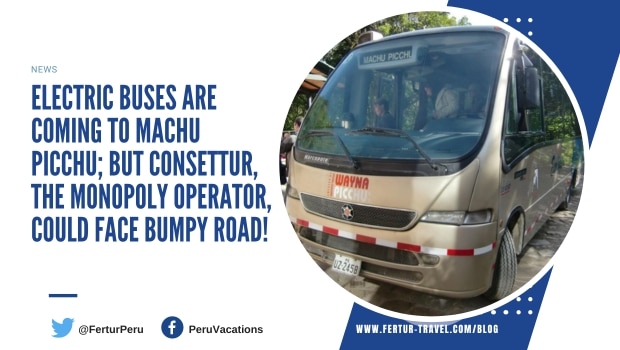
Electric Buses to Reduce Emissions at Machu Picchu
In a bid to modernize and go green, Consettur Machupicchu, the long-standing monopoly operator of shuttle bus services to Peru’s iconic Machu Picchu, announced the introduction of state-of-the-art electric buses to its fleet.
In a bold leap into a greener future, Consettur is partnering with Pluz Energía (formerly Enel Distribución Perú) to roll out two electric buses starting in January 2025. The eBuses will ferry tourists from Machupicchu Pueblo to the ancient citadel, powered by new electric chargers installed by Pluz Energía. The goal is to eventually turn the famous switch-back Hiram Bingham Highway into a 100% zero-carbon route.
Consettur’s Green Initiative: Electric Buses for Machu Picchu
The buses, with a range of 250 kilometers per full charge, promise to make about 10 daily trips and transport up to 300 tourists a day, slashing CO2 emissions by 40 tons annually.
“We are moved by a firm commitment to decarbonize transport,” he said, emphasizing how the initiative benefits both the environment and tourism. “We appreciate Consettur’s confidence in transforming its fleet and boosting electric mobility as the path to sustainability.”
Alexandrino Montesinos, general manager of Consettur, echoed the enthusiasm.
“We are convinced that tourism must be a sustainable economic activity,” Montesinos said. “This partnership with Pluz Energía allows us to meet our environmental objectives while continuing to serve the thousands of visitors who come to experience our Wonder of the World.”
But Consettur, the Monopoly Operator, Could Face Bumpy Road
But while Consettur paints itself as a sustainability champion, its electric bus announcement comes amid controversy that threatens its dominance. Consettur’s monopoly over the lucrative Machu Picchu route has long been a point of contention, and some are calling for an overhaul of the company’s grip on the Machu Picchu shuttle route.
For years, Consettur has maintained a fraught hold on the only road to the world-famous ruins. Now, as they move to modernize, they’re facing mounting challenges.
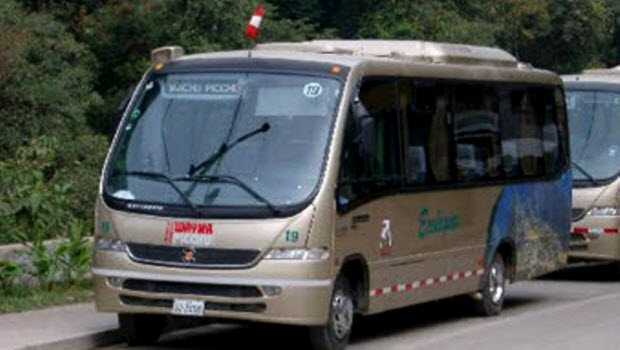
Critics are questioning the legitimacy of their monopoly contract, which is set to expire in 2025, while local entrepreneurs eye the lucrative route.
A History of Controversy: Consettur’s Contested Contract
The controversy surrounding Consettur’s operations dates back to the company’s inception in 1995. Initially granted a two-year concession to operate the Hiram Bingham route, Consettur’s contract has been mired in disputes for years.
In 1997, the two-year concession was extended for an additional 10 years, and was ultimately resolved by mutual agreement in 2003 to extent for a total of 20 years.
Then in 2005, Alejandro Soto, now a powerful congressman but then Consettur’s legal representative, sought judicial recognition from a judge in Urubamba of a newly amended concession contract — this time for a total of 30 years.
In 2009, Indecopi, Peru’s consumer protection and anti-trust agency, found the new contract full of irregularities and fined Consettur heavily. Consettur tried to overturn the decision through legal appeals, including to Peru’s highest court, the Constitutional Tribunal, but failed.
Then, last years, Segundino Humpire Huallpa, the former manager of Consettur who signed the original contract in 1995, came forward with explosive allegations.
In an interview with La República, Humpire said that the initial agreement he signed was for a mere two-year concession.
“In the original contract, my signature appears, I did it for two years, not a day more or less,” Humpire stated. He went on to allege that his signature was later forged on the subsequent contract extending the concession to 30 years. “After that contract (1995), everything is false,” he asserted.
Municipality’s Stake in Consettur
Complicating matters, the municipality of Machupicchu Pueblo owns 38% of Consettur through Tramusa, creating a conflict of interest as both grantor and beneficiary. Critics say this arrangement benefits a small group while excluding the broader community.
A New Challenger Emerges: Machupicchu Bus Operator
Today, Consettur faces a new challenge in the form of Machupicchu Bus Operator, a group formed by local entrepreneurs from Machupicchu Pueblo and Cusco in partnership with international tourism interests. This new entity aims to compete in the upcoming bid for the Hiram Bingham route, offering improved services, community engagement, and environmental sustainability.
Machupicchu Bus Operator has pledged to run at least ten buses by local companies, ensuring profits stay in the community. They also plan to add new buses every three years and are exploring an electric fleet, pending approval.
The Road Ahead: Balancing Sustainability, Community, and Competition
As Consettur prepares to launch its electric buses in January 2025, the future of transportation to Machu Picchu hangs in the balance. The upcoming bidding process for the route concession will likely be a watershed moment, determining whether Consettur can maintain its long-held monopoly or if a new era of competition and local participation will dawn for one of the world’s most famous tourist destinations.
With environmental concerns, community benefits, and fair competition all at stake, the road ahead for Machu Picchu’s transportation system promises to be as winding and unpredictable as the Hiram Bingham route itself. As tourists continue to flock to the ancient Inca citadel, the battle over who will transport them — and how — is far from over.
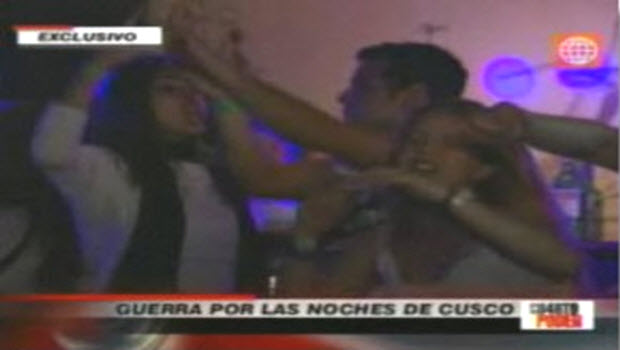 City ordinance threatens late night dance clubs in Cusco’s historic center
City ordinance threatens late night dance clubs in Cusco’s historic center 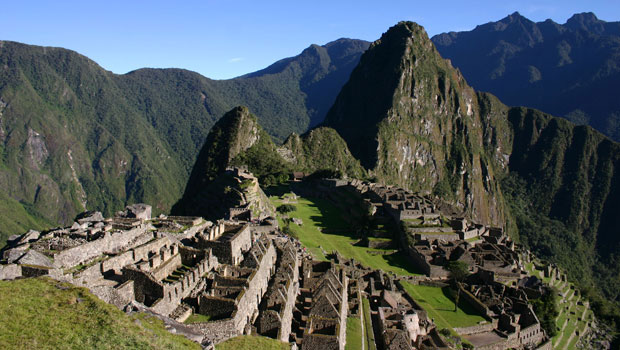 Cusco Tourism leader worried over Machu Picchu preservation
Cusco Tourism leader worried over Machu Picchu preservation  PeruRail gets tough on carry-on baggage limits for its Machu Picchu & Puno train service
PeruRail gets tough on carry-on baggage limits for its Machu Picchu & Puno train service 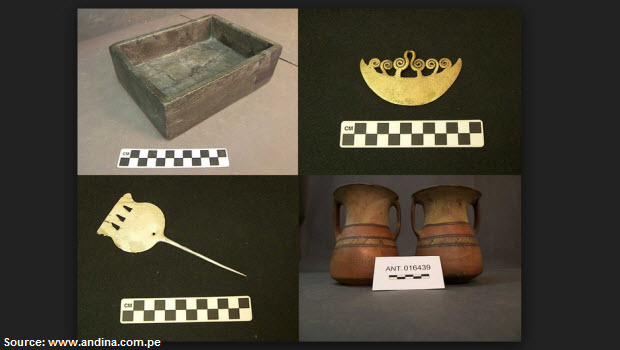 President García: Yale will return entire Machu Picchu collection
President García: Yale will return entire Machu Picchu collection 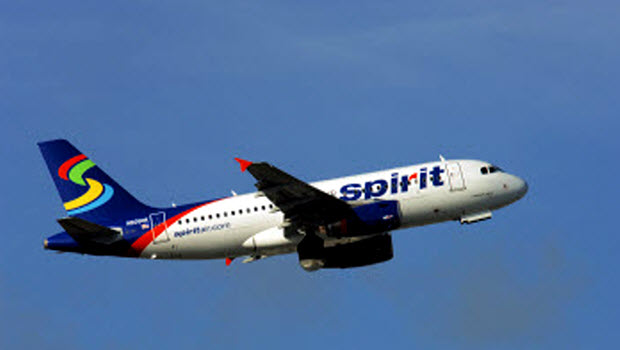 Spirit to resume daily flights between Ft Lauderdale and Lima
Spirit to resume daily flights between Ft Lauderdale and Lima 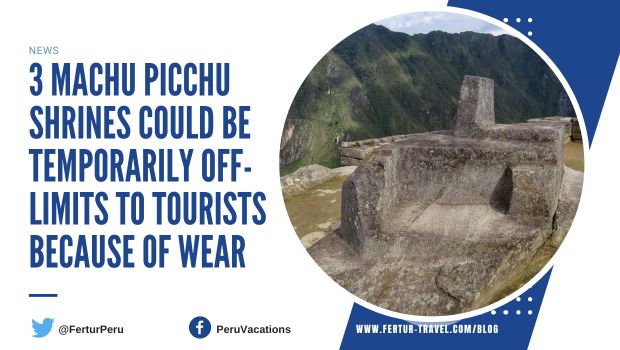 3 Machu Picchu Shrines Showing Wear And Could Be Closed
3 Machu Picchu Shrines Showing Wear And Could Be Closed 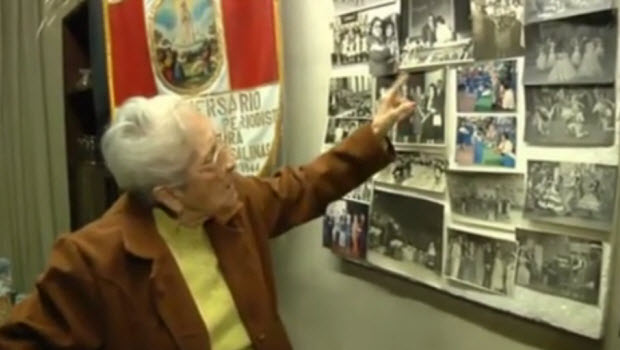 Meet the world’s oldest radio show host in Lima, Peru – Guinness World Records
Meet the world’s oldest radio show host in Lima, Peru – Guinness World Records